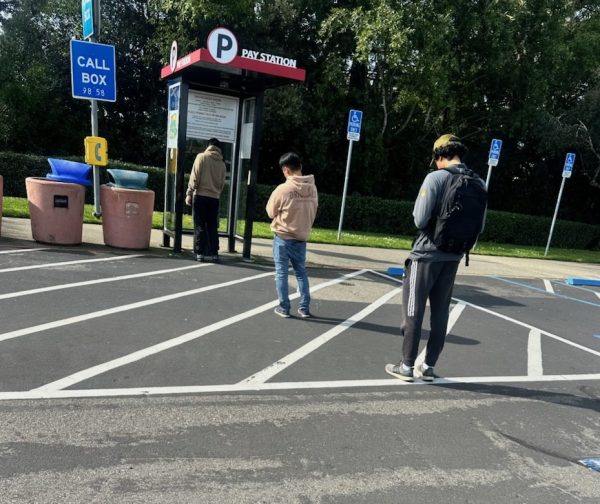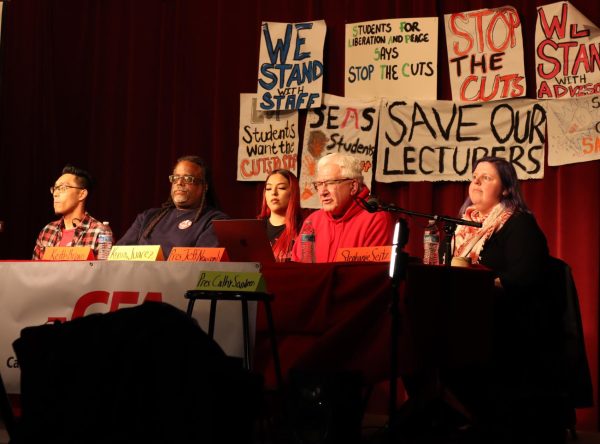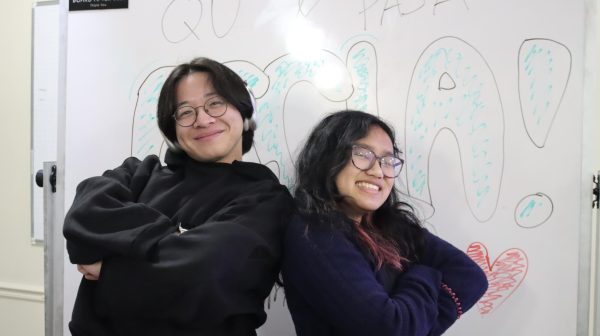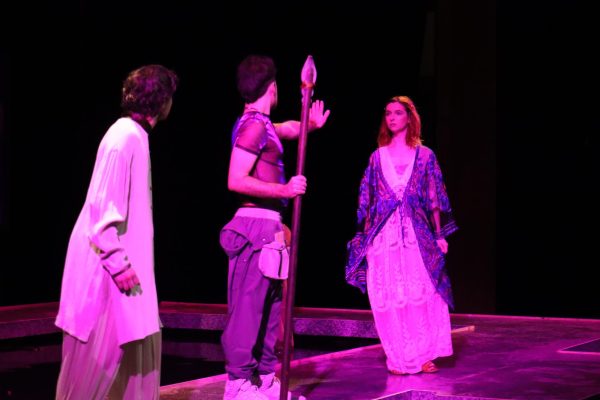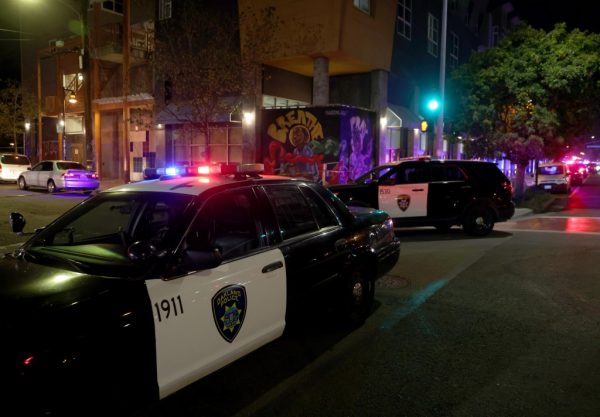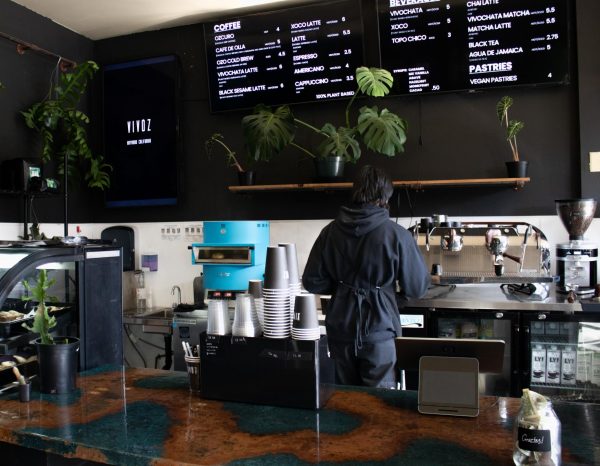Touring, not what we imagined

2015 redesigned Pioneer logo.
To the average spectator it may seem like traveling bands appear to music venues at a magical flick of a wrist or even through a secret portal hidden behind the curtains.
The truth is usually a lot messier than that. Getting from one show to another usually consists of cramming, eating out of coolers, lack of sleep, and lots of waiting around.
On Sept. 24, venue 924 Gilman in Berkeley hosted a five band Ska-Reggae show, of which two bands were traveling into the San Francisco Bay Area. The two bands Matamoska! from Los Angeles and The Bandulus from Oregon were on their third of eight official “California Tour/EP Release” shows.
To some showgoers it’s easy to ignore the fact that touring bands have a life and other responsibilities outside of being musicians and may only see them as a traveling circus. However, that is not the reality.
“Once we collect our payout we will be back on our way, drive straight for six to seven hours, and then be back at work by 6 a.m.,” said Esteban Valenzuela, 25, as he stood in front of his band Matamoska!’s Ford E-450 shuttle bus as he rushed to turn in his online homework due by 11 p.m. “I will try to get some sleep on the bus.”
Traveling bands sometimes drive up to nine hours straight from one show to the next, according to Jose Padilla, 37, frontman of Matamoska!. Fortunately, their shuttle bus comes equipped with a custom made pair of bunk beds where the drivers nap in between turns at the wheel. That is not always the case though.
“Usually we do a whole lot of waiting around before the doors open…hours…sometimes we explore around the venue but never go too far.” said frontman, Jeremy Pena, 34, of The Bandulus.
Matamoska! has more than 6,000 Instagram followers and The Bandulus roughly 3,000 on Facebook but despite a large online fanbase, traveling is a constant struggle for underground traveling bands like them.
Compared to world-famous bands such as Bay Area natives, Green Day, who, according to Alternative Press, can generate up to $500,000 per booking, underground bands only make a tiny fraction of that.
Both Matamoska! and The Bandulus made $100 at the Gilman show; just enough for one tank of gas. If there is any left over it will go towards food, lodging, vehicle issues, or band merchandise said Padilla and Peńa. It may not seem like much money taking into account the band’s efforts to get to the venue but, also considering that some shows go unpaid, it is deemed fair.
Some venues such as 924 Gilman are generally more supportive than others towards traveling bands. “We like to give a little extra money to traveling bands considering that they have more expenses on the road.” says head ska booker, Tony Acosta
The two bands are experienced road acts. Padilla said this was their fourth Bay Area tour and have traveled through the United States and parts of Mexico as well. The Bandulus are originally from Texas, they have toured around the country, and were on their second trip to the Bay Area.
“Touring is an important part of the music biz, and has been since the early 1800’s,” says Daniel Zinn, director of Jazz Studies, Saxophone at CSU East Bay and a professional musician who has toured throughout the United States, Canada, and Mexico. “It’s important for artists to keep in touch with the fans, not only for sales but for creativity, energy, and growth. Music isn’t just a one-way street. Ideally, there is a symbiotic relationship between the performer and the audience which keeps the music vital and alive. Also, touring is making up for lost income from the sales of recordings, due to streaming.”
Being on the road over a week requires the bands to be prepared with food and water. Padilla said, “We carry a grocery cooler in our bus and pack it with fruits, veggies, and basic sandwich ingredients” and “Sometimes we get lucky. Sometimes we meet up with family and they feed us for the day.” according to Peńa
Before taking off for their six-hour excursion, Padilla hovered around his band’s Ford shuttle bus doing last minute checks before they hit the road.
This will not be the last time the two bands will travel through the Bay Area according to Padilla and Peńa. Both of them have future plans to continue releasing new music and spreading it throughout the states. They both plan on returning to the Bay Area soon.


